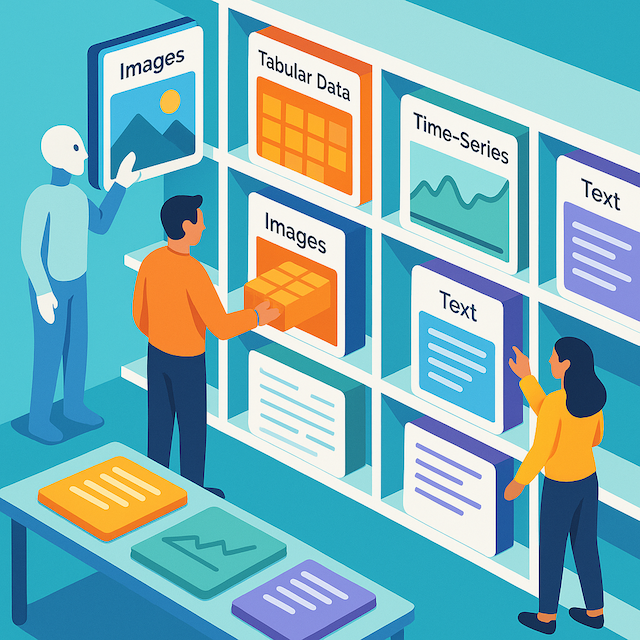
Unlock the power of data for your machine learning and AI projects. Discover the best sources and strategies to find high-quality datasets, including web scraping, public datasets, data marketplaces,
By Victor Bolu @June, 18 2025

In the realm of machine learning and AI, having access to high-quality datasets is crucial for building robust models and extracting valuable insights. Whether you're a data scientist, researcher, or AI enthusiast, finding the right datasets can make all the difference in the success of your projects. In this blog post, we will explore various sources and strategies for acquiring datasets, including web scraping, public datasets, paid-for datasets, data marketplaces, and research data repositories. We will also discuss the importance of preprocessed and labeled data in streamlining your machine learning and AI development process.
When embarking on a new project, you may wonder where to find the necessary data. Here are several reliable sources to consider:
Harness the power of web scraping techniques to extract data from websites. Tools like BeautifulSoup and Scrapy enable you to create custom datasets tailored to your specific needs.
Explore reputable platforms such as Data.gov, Kaggle, and Google Cloud Public Datasets that provide an extensive collection of freely accessible datasets across diverse domains.
Discover curated datasets for purchase on renowned platforms like DataMarket, Quandl, and our very own webautomation.io's dataset marketplace. These marketplaces offer datasets catering to specific industries and research areas.
Tap into the data provided by various websites and platforms through their APIs. Integrating real-time or historical data into your projects becomes seamless, enabling you to stay up-to-date and make accurate predictions.
To ensure your machine learning endeavors are successful, it's crucial to find high-quality datasets. Consider the following strategies:
Explore popular repositories such as Kaggle, UCI Machine Learning Repository, and the Stanford Large Network Dataset Collection. These platforms house a wide range of datasets specifically curated for machine learning tasks.
Engage in machine learning competitions on platforms like Kaggle. These competitions not only provide valuable experience but also grant access to top-notch datasets carefully prepared by the competition organizers.
Research papers often include datasets used in experiments. Delve into relevant papers within your domain of interest, and reach out to authors to inquire about accessing their datasets.
Make use of dataset marketplaces like webautomation.io's marketplace, as well as other platforms mentioned earlier. These marketplaces offer a diverse selection of datasets suitable for various machine learning projects.
For research-oriented projects, accessing relevant and reliable research data is crucial. Consider the following avenues:
Many universities and research institutions maintain data repositories where researchers share their datasets. Check if your affiliated institution provides access to such repositories.
Research papers often mention the datasets used in the study. Explore supplementary materials or reach out to the authors directly to inquire about accessing the data.
Government organizations and agencies frequently release research data related to different fields. Websites like Data.gov and the European Data Portal provide access to an extensive array of open research data.
Foster connections within the research community by attending conferences, workshops, and academic events. Networking with experts in your domain can lead to collaborations and shared research datasets.
Acquiring the right datasets is paramount for the success of your machine learning and AI projects. By utilizing web scraping, public datasets, paid-for datasets, data marketplaces, research data repositories, and exploring specialized datasets like NLP datasets, image datasets, and time series datasets, you can find the data you need. Remember, preprocessed data ensures data quality, while labeled data accelerates supervised learning tasks. Utilize these diverse sources and strategies to unlock the power of data and drive innovation in the realm of machine learning and AI.
Always ensure that you comply with any licensing agreements or terms of use associated with the datasets you acquire, to ensure ethical and legal use of the data.
You can get data for your projects from various sources such as web scraping, public datasets, data marketplaces, APIs, and collaborations with academic institutions and research organizations.
To find good datasets for machine learning, you can explore data repositories, participate in data competitions, search academic sources, and utilize data marketplaces that curate high-quality datasets specifically for machine learning tasks.
Research data can be obtained from academic institutions' data repositories, research journals and publications, open data initiatives by government organizations, and through collaborations and partnerships within the research community.